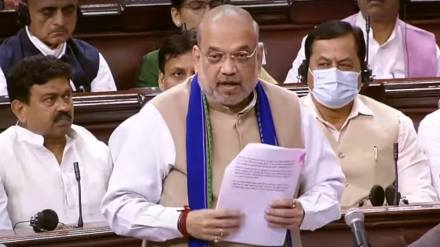The three municipal corporations of Delhi are all set to reunite as one with the Rajya Sabha passing the Delhi Municipal Corporation (Amendment) Bill-2022 to unify three civic bodies in the national capital on Tuesday evening. The Upper House of Parliament passed the Bill through a voice vote after negating all the amendments sought by the Opposition. The government also rejected a motion to send the Delhi Municipal Corporation (Amendment) Bill-2022 to a select committee.
Aam Aadmi Party leader and Rajya Sabha MP Sanjay Singh demanded the division of votes on an amendment moved by him but Deputy Chairman Harivansh rejected his demand saying it was moved after the stipulated time.
During a discussion on the bill in the Rajya Sabha, Union Home Minister Amit Shah said that the unification has been necessitated due to the step-motherly treatment meted out by the AAP-led Delhi government towards the local bodies. Shah said that the tri-furcation of the MCD was a mistake by the previous Congress regime and the current bill is as per the constitution.
“You can have animosity with us, but what animosity you have with the people of Delhi. They have voted for you in government…,” Shah asked the Aam Aadmi Party.
Asserting that Delhi is a union territory and not a full state, Shah said that Parliament has the competence to frame laws for Delhi. “This bill is as per the Constitution. The central government has powers to enact laws in the Union Territory of Delhi… This bill is from no angle an attack on the federal structure,” Shah said.
The Bill was passed by the Lok Sabha last week. The Centre claims that the unification of the municipal corporations will ensure synergised and strategic planning and optimal utilisation of resources.
According to a PTI report, government sources claimed that the trifurcation done in 2011 was uneven in terms of the territorial divisions and revenue-generating potential of each corporation. As a result, there was a huge gap in the resources available to the three corporations, vis-a-vis their obligations. The gap widened with time, increasing the financial difficulties of the three municipal corporations, leaving them incapacitated to make timely payments of salaries and retirement benefits to their employees, creating serious impediments in maintaining civic services in Delhi.
